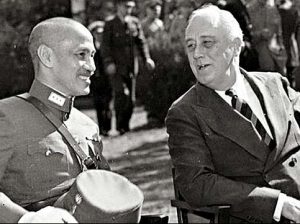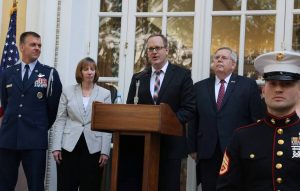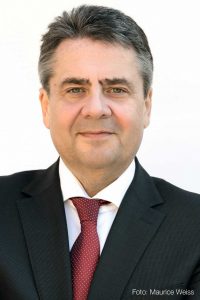During World War II, as FDR developed his vision for a post-war global order, he made a surprising decision. Against the wishes of his closest ally, Winston Churchill, FDR envisioned a world where China played a leading role as a great power. Given China’s dim prospects at the time, Roosevelt’s prediction was remarkably foresighted.
 Come learn about the main trends that will affect China’s strategic behavior in the near future with the European Center of Excellence for Countering Hybrid Threats (Hybrid CoE), a joint EU-NATO project.
Come learn about the main trends that will affect China’s strategic behavior in the near future with the European Center of Excellence for Countering Hybrid Threats (Hybrid CoE), a joint EU-NATO project.
Experts from over a dozen EU and NATO countries will be at Adams House in April preparing a set of reports on the internal and external factors that will drive China’s strategic behavior over the next few years. The experts* have agreed to share their initial findings with the Harvard community on Friday, April 26, 11:00am-12:30pm, in the Lower Common Room of Adams House (26 Plympton St., Cambridge).
RSVP Required
*Gunther Hauser, Una Bērziņa-Čerenkova, Matti Nojonen, and Juliette Genevaz will be presenting on behalf of the 14 experts
More information on the Hybrid CoE, below.

The European Center of Excellence for Countering Hybrid Threats (Hybrid CoE), joint EU-NATO Center of Excellence is an international hub operating through our networks of practitioners and experts. Our goal is to build member states’ and institutions’ capabilities and enhance EU-NATO cooperation in countering hybrid threats.
-
20 participating countries: Austria, Canada, Cyprus, Czech Republic, Denmark, Estonia, Finland, France, Germany, Italy, Latvia, Lithuania, Norway, Poland, Romania, Spain, Sweden, the Netherlands, the UK, the US.
- Hybrid threat can be characterized as coordinated and synchronized action, that deliberately targets democratic states’ and institutions systemic vulnerabilities, through a wide range of means
The functions of Hybrid CoE include the following:
-
to investigate and examine hybrid influencing targeted to Western democracies by state and non-state actors and to map participants vulnerabilities and improve their resilience and response
-
to conduct tailored training and arrange scenario-based exercises for practitioners aimed at enhancing the member states individual capabilities, as well as interoperability between and among member states, the EU and NATO for countering hybrid threats;
-
to conduct research and analysis into hybrid threats and methods to counter such threats;
-
to engage with and invite dialogue with governmental, non-governmental experts and practitioners from a wide range of professional sectors and disciplines aiming at improving situational awareness of hybrid threats.
 58 different countries on all 7 continents. He has knowingly, and unknowingly, been part of many of those missions. From humanitarian aid to Haiti and Iran, to counter drug support in Columbia – from airlifting Mongolian troops to the warzone, to taking Jordanians home – from combat airdrop resupply of isolated units in Afghanistan, to medivac of US wounded inside the lifesaving “golden hour” – no one questions the US military’s ability to move around the globe – at least not yet.
58 different countries on all 7 continents. He has knowingly, and unknowingly, been part of many of those missions. From humanitarian aid to Haiti and Iran, to counter drug support in Columbia – from airlifting Mongolian troops to the warzone, to taking Jordanians home – from combat airdrop resupply of isolated units in Afghanistan, to medivac of US wounded inside the lifesaving “golden hour” – no one questions the US military’s ability to move around the globe – at least not yet. 
 Come learn about the main trends that will affect China’s strategic behavior in the near future with the European Center of Excellence for Countering Hybrid Threats (Hybrid CoE), a joint EU-NATO project.
Come learn about the main trends that will affect China’s strategic behavior in the near future with the European Center of Excellence for Countering Hybrid Threats (Hybrid CoE), a joint EU-NATO project.
